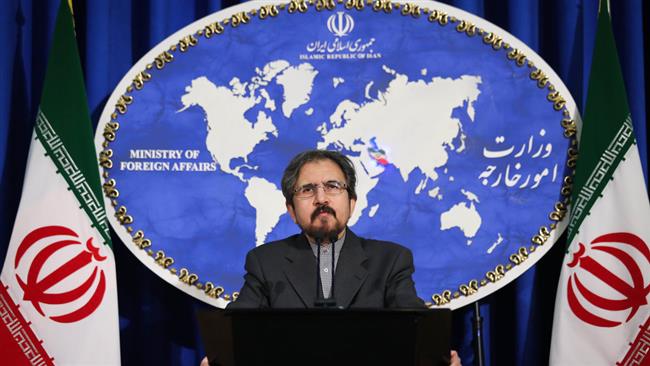
RNA - "The Bahraini government is pursuing a tribal and sectarian approach and seeks to challenge definitive rules of religion by leveling unfounded accusations against Sheikh Isa Qassim and two of his aides instead of their trial," Iranian Foreign Ministry Spokesman Bahram Qassemi said on Sunday.
The Bahraini court issued the verdict on Sunday sentencing Qassim, the spiritual leader of Bahrain’s dissolved opposition bloc, the al-Wefaq National Islamic Society, to one year in prison, suspended for three years, and ordered him to pay a fine of 100,000 Bahraini dinars (over $265,000). The court also ruled to confiscate Qassim's properties worth three million Bahraini dinars (almost $8 million) and two of his homes.
Additionally, Hussain al-Qassab and Mirza al-Dirazi, staffers from the cleric's office, were sentenced to one-year imprisonment.
The Iranian spokesperson once again called on the Bahraini officials to engage in dialogue and interaction with the country's people instead of fighting against their fundamental right of freedom.
Qassemi warned that the Bahraini government's moves would further complicate the situation in the country.
He added that the Bahraini people have been following the cleric's peaceful approaches and continue their protests, calling for the removal of restrictions on their religious leader.
It is expected that the Bahraini government pay serious attention to Sheikh Qassim's status and his spiritual influence and reduce pressure on clerics by respecting people's demands.
Qassim had his citizenship revoked last June over accusations that he used his position to serve foreign interests and promote sectarianism and violence. The cleric has denied the allegations.
Thousands of Bahrainis took to the streets on Sunday to denounce the ruling against the Shia cleric.
In a statement, the al-Wefaq National Islamic Society accused the Bahraini regime of having dragged the country into a new crisis, eliminating all possible political opportunities and depriving most citizens of their right to security, stability and justice.
It also called on the international community to help guarantee stability and contribute to a comprehensive democratic political process meant to bring Bahrain out of crisis and reflect the popular will.
847/940